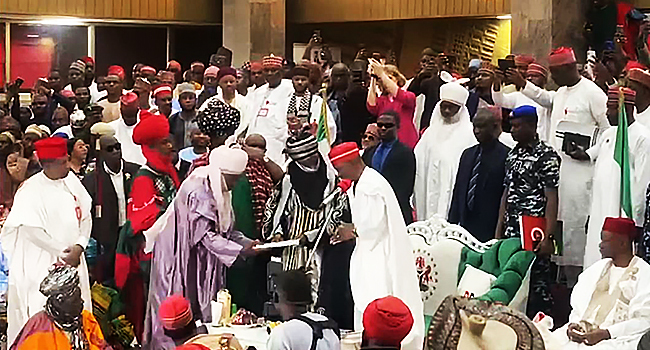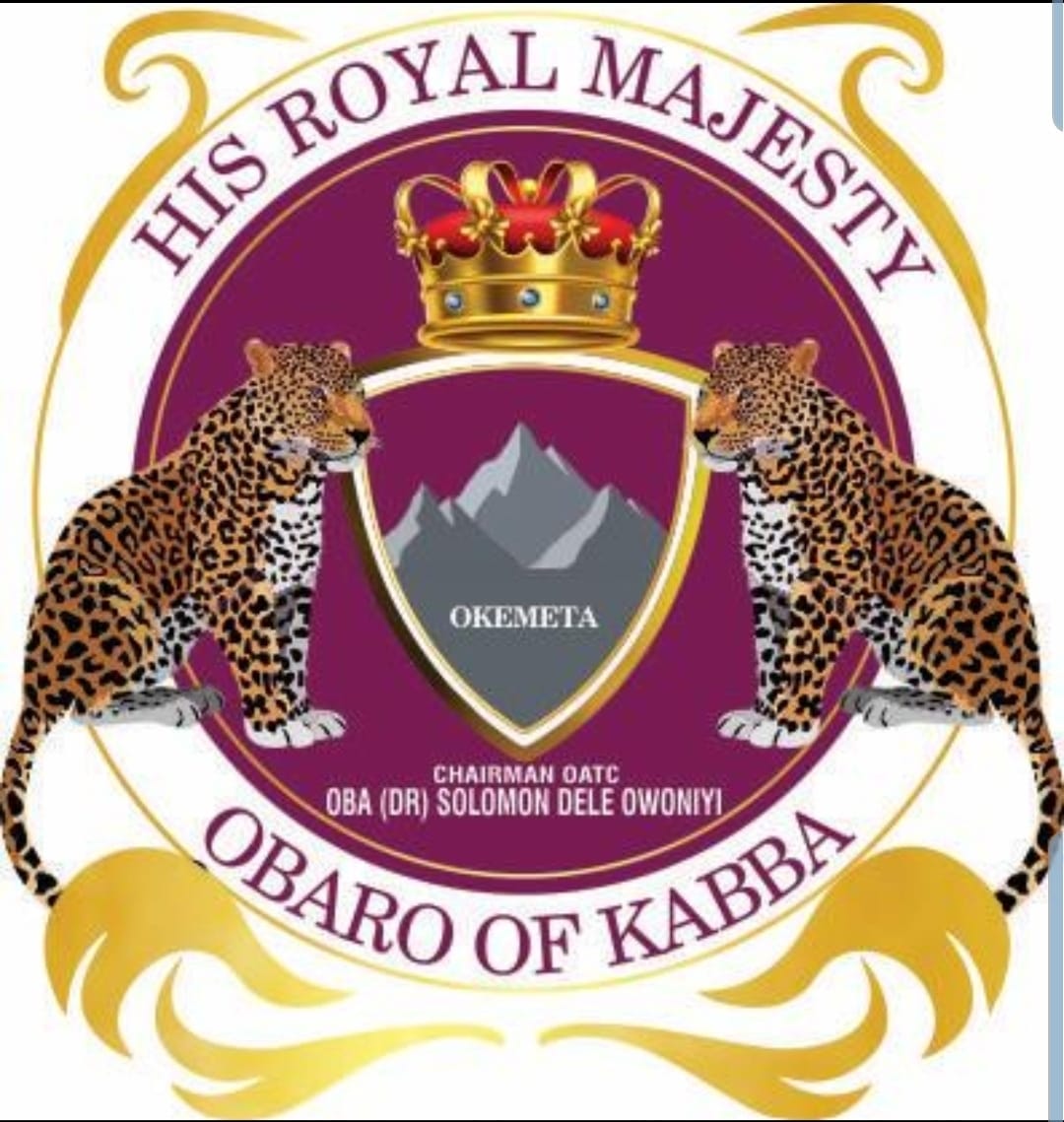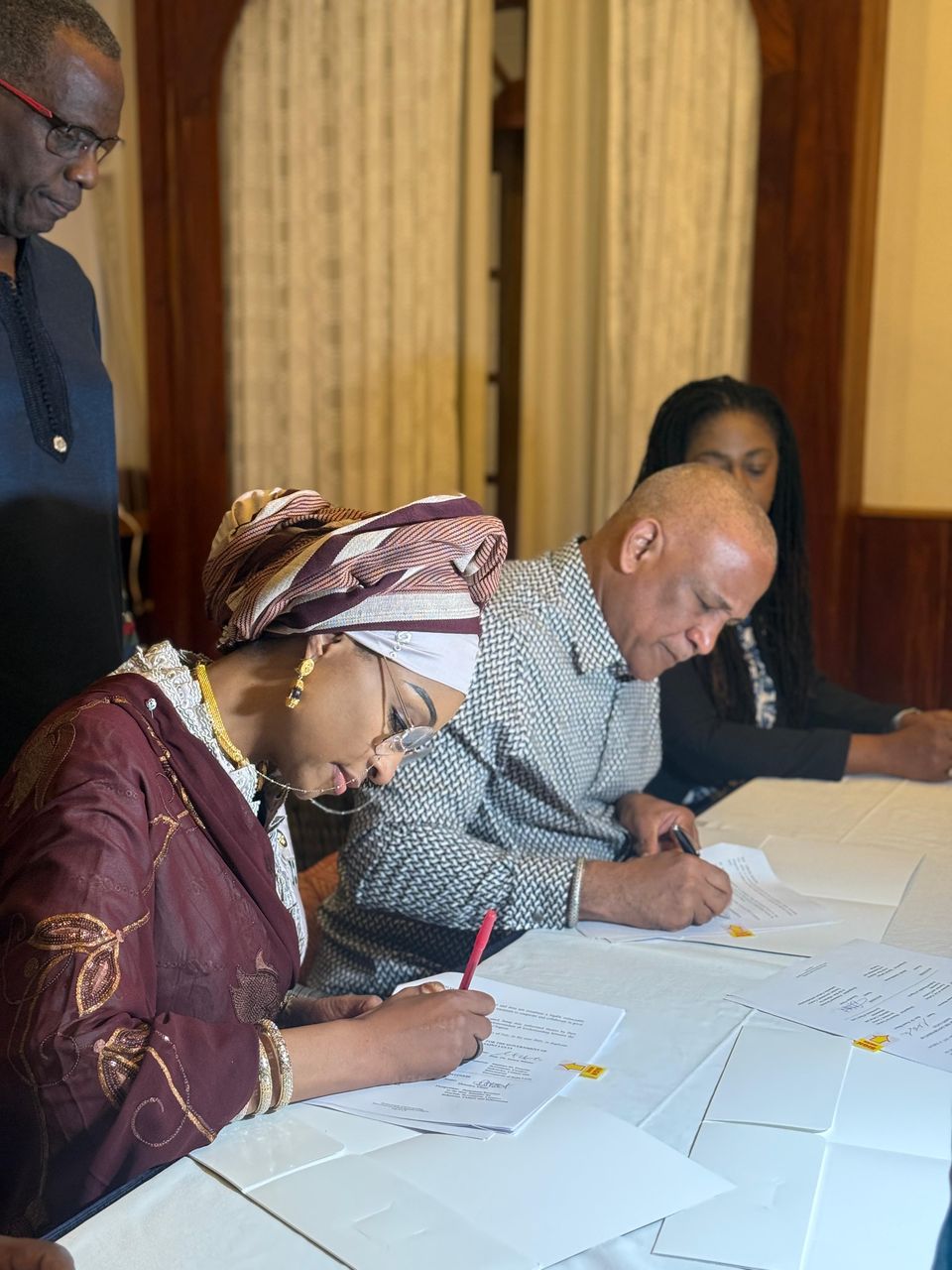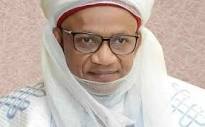Barely four years after he was deposed by the immediate past Governor of Kano state,Abdullahi Ganduje, Governor Abba Yusuf at the Government House in Kano on Friday issued the letter of appointment to Sanusi Lamido which restored him as Kano Emir.
Governor Yusuf said,
“By the powers conferred on me by the Kano Emirate Council Law of 1984 and 2024, and supported by the recommendation of the kingmakers, I have the singular pleasure to confirm the reappointment of Muhammadu Sanusi II as the Emir of Kano and the head of the Kano Emirate Council,” the governor said.
The governor urged the emir to lead according to Islamic tenets, as he read out his role.
“As the Emir is being appointed for the second time, it is based on his competence, credibility, and popularity,” he said.
“I urge him to be guided by the principles of Islamic teachings and to use his position to unite the emirate, fostering harmony among the Islamic sects in the state.”
Traditional rulers, kingmakers, and other top dignitaries were in attendance at the event which came barely one day after Governor Yusuf signed the Kano State Emirate Council (Repeal) Bill 2024 into law.
The Emir is expected to lead the Juma’at prayer at the Government House.
The new law replaces the Kano State Emirates Council Law, 2019, and dissolves the emirate councils created by Ganduje.
Ganduje had splited⁵ the Kano Emirate into five in December 2019 and deposed Sanusi II, on March 9, 2020. The emirates created by the Ganduje administration were Karaye, Bichi, Rano, and Gaya, in addition to Kano.
Governor Yusuf at the reinstatement event clarified that the 2019 move was a case of victimisation and narrated events leading to his return as emir
“We had a series of meetings with the Kingmakers yesterday, extensive discussions with the Speaker, and we also sat with all the heads of security. At the end of the day, we all gathered in the chamber where I received the bill that repealed the former law,” the governor said.
He continued, “We did that out of our convictions and belief that this gentleman was victimized in 2019. We all feel that we must restore what is due to the good people of the state.”
Governor Yusuf also thanked the legislative body for the accelerated passage of the bill
“Let me use this opportunity to humbly thank the Speaker and all members of the House for your determination and respect for the rule of law. It shows your interest in the welfare of the people of the state,” he said.
Emir Sanusi II, a former governor of the Central Bank of Nigeria (CBN), was known as Lamido Sanusi before becoming king.
His deposition generated controversy in the state and beyond. But in reversing it, Governor Yusuf said it was the repeal of the old law that “balkanised the over 1,000-year- Kano Emirate.”
“From the very moment I signed the bill into law, it means that all appointments made in accordance with that 2019 law are voided, and the balkanised Kano Emirate has been restored to its original pre-2019 status,” the governor said.
“The repeal of the 2019 law means that there is no emir in Kano as of now except the reinstated emir.”
Following the new law, he gave the emirs who were in charge of the dissolved emirates 48 hours to leave their palaces.
Before signing the bill, Governor Yusuf and the speaker of the Kano State Assembly Aminu Abdussalam had met with traditional rulers and kingmakers behind closed doors.
Sanusi II started his reign on June 8, 2014, when Rabiu Kwankwaso was the governor of Kano State. His appointment came about four months after Goodluck Jonathan – the then-president – removed him as the governor of the CBN.




